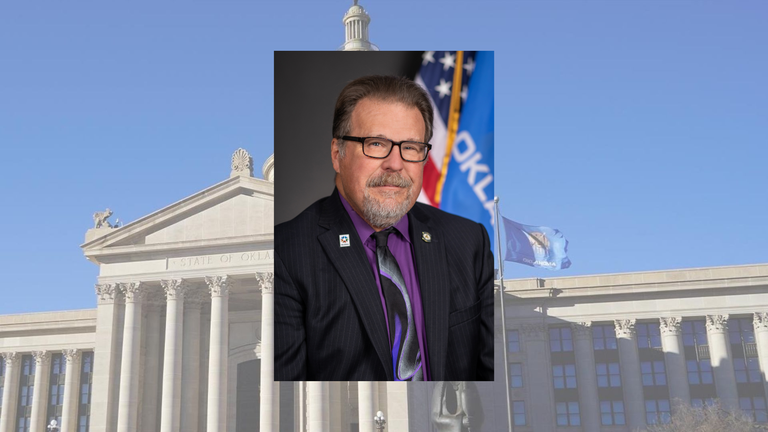
Budget & Tax
Ray Carter | December 7, 2023
Bergstrom seeks gradual Oklahoma income-tax repeal
Ray Carter
Under legislation filed by state Sen. Micheal Bergstrom, Oklahoma’s personal income tax would be put on a path to full repeal through periodic tax cuts tied to revenue growth.
“Personal income tax punishes work, hindering both individuals and businesses from reaching their full potential,” said Bergstrom, R-Adair. “Senate Bill 1228 charts a course toward the gradual elimination of the state income tax, all while implementing safeguards to ensure that essential revenue for public services remains intact.”
Senate Bill 1228 would reduce Oklahoma’s current top personal-income tax rate from 4.75 percent to 4.5 percent. Additional quarter-point reductions would automatically occur in any future year in which state revenue collections increase by $400 million or more compared to the prior year. The quarter-point reductions would continue until the income tax is fully eliminated.
Gov. Kevin Stitt has called for reducing Oklahoma’s personal income tax and putting it on a path to full repeal. In October, Stitt called lawmakers into special session to debate tax cuts. At that time, House Speaker Charles McCall, R-Atoka, said the House Republican caucus was prepared to cut the tax by a quarter-point and put it on the path to full elimination.
However, within hours of the session’s start, members of the Oklahoma Senate voted to kill the tax-cut discussion by abruptly adjourning the session. No roll call was taken on the adjournment vote, which prevented Oklahoma citizens from knowing how their local senator voted on the issue.
Several Republican senators publicly criticized that action and called for lawmakers to cut taxes, including state Sens. Rob Standridge, R-Norman; Blake Stephens, R-Tahlequah; Nathan Dahm, R-Tulsa; Warren Hamilton, R-McCurtain; and Cody Rogers, R-Tulsa. Although he did not issue a public statement, state Sen. Shane Jett, R-Shawnee, appeared with Stitt at a press conference in support of cutting taxes.
Since the 1990s, Oklahoma’s top personal income-tax rate has been cut from 7 percent to the current rate of 4.75, and state tax collections have steadily increased overall even as the income-tax rate has come down.
Research has consistently shown that lower taxes are connected to stronger economic growth.
A policy paper by Tax Foundation senior policy analyst Timothy Vermeer reviewed academic literature on the topic and found that all but one of the studies compiled showed a positive correlation between lower income-tax rates and GDP growth, increased chances of upward mobility, and wage growth.
A recent poll also showed that Oklahomans overwhelmingly support cutting the state income tax and gradually eliminating the tax.
According to the survey, conducted by WPA Intelligence (WPAi) on behalf of the Oklahoma Council of Public Affairs (OCPA) and Americans for Prosperity–Oklahoma (AFP), 65% of Oklahoma voters support cutting the state income tax, while only 22% oppose income-tax cuts.
The survey also found that 67% of voters support elimination of Oklahoma’s income tax.
The WPA Intelligence survey found that 83% of Republican voters support reducing the personal income tax, as do 57% of Independents and even 38% of Democrats.
The survey similarly showed that 82% of Republicans support elimination of the personal income tax, as do 64% of Independents and 43% of Democrats.
The WPAi survey was conducted from September 23 to 25, 2023. The study had a sample size of 523 likely voters with a margin of error of ±4.3% in 95 out of 100 cases.

Ray Carter
Director, Center for Independent Journalism
Ray Carter is the director of OCPA’s Center for Independent Journalism. He has two decades of experience in journalism and communications. He previously served as senior Capitol reporter for The Journal Record, media director for the Oklahoma House of Representatives, and chief editorial writer at The Oklahoman. As a reporter for The Journal Record, Carter received 12 Carl Rogan Awards in four years—including awards for investigative reporting, general news reporting, feature writing, spot news reporting, business reporting, and sports reporting. While at The Oklahoman, he was the recipient of several awards, including first place in the editorial writing category of the Associated Press/Oklahoma News Executives Carl Rogan Memorial News Excellence Competition for an editorial on the history of racism in the Oklahoma legislature.